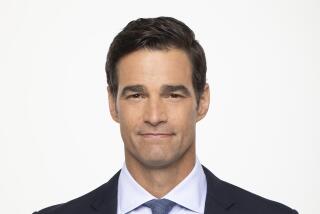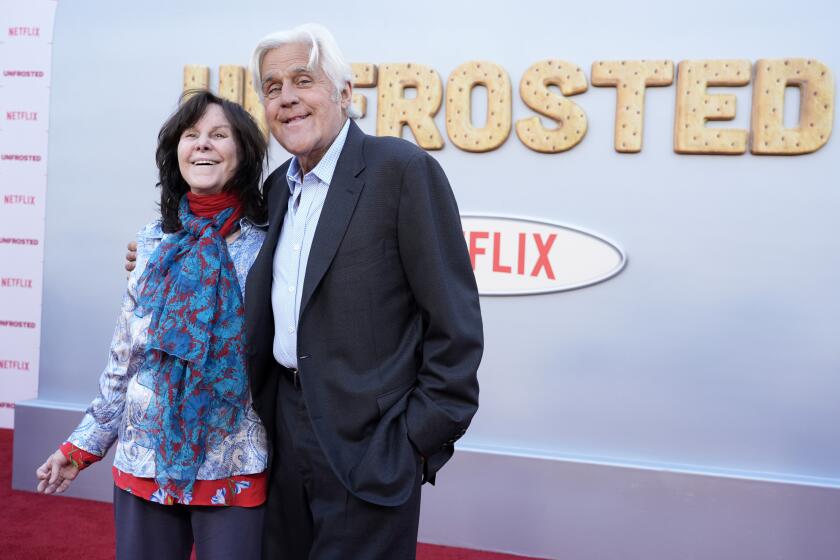Paper-TV ties stall sale of Tribune
Tribune Co. took a calculated risk when it purchased Times Mirror Co. in 2000, acquiring newspapers in markets where it already owned TV stations despite federal rules barring such combinations.
Tribune executives expected the restrictions to be gone by now. That they are not has posed an obstacle to the Chicago-based company’s sale.
Tribune has been allowed to operate the Los Angeles Times and KTLA-TV Channel 5, along with newspapers and TV stations in four other markets, through a complex web of loopholes, waivers and grandfather clauses that would vanish if the company changed hands, forcing a new owner to sell assets.
“Strategic investors for the most part can’t bid for Tribune under the current regulatory regime,” said analyst Leland Westerfield of BMO Capital Markets.
Public interest groups say the rule is vital in preventing further media consolidation and preserving local discourse. But media companies have been fighting to repeal the rule for years, calling it outdated, especially at a time when the Internet has proliferated consumer choice and eroded the dominance of newspapers and TV stations.
Yet even in the Internet age, most Americans depend on their hometown media for the local news, said Andrew Jay Schwartzman, president of Media Access Project, a public interest law firm.
“When people decide for whom they wish to vote for city council, for mayor, they rely on over-the-air television and daily newspapers,” he said.
The rules can be traced to the era of the Watergate scandal, when President Nixon threatened to retaliate against the Washington Post for its aggressive reporting.
“The main thing is the Post is going to have damnable, damnable problems out of this one,” Nixon told two top aides, according to transcripts of White House tapes from Sept. 15, 1972. “They have a television station ... and they’re going to have to get it renewed.”
Three years after Nixon’s threat, the Federal Communications Commission banned companies from owning a newspaper and broadcast TV or radio station in the same city. The Washington Post decided to swap its local television station with one owned by a Detroit newspaper in 1978.
“It’s always been a political rule,” said Shaun Sheehan, Tribune’s Washington vice president.
But Nixon’s role may be apocryphal. No direct connection was ever established between his threat and the rule.
The FCC is now holding public hearings on lifting the ban as part of a periodic review of media ownership rules, but that process won’t be completed until next year.
Ending the cross-ownership ban would be controversial. Some key members of the new Democratic majority in Congress have been critical of allowing greater media consolidation and could try to pass legislation halting any change. A repeal of the restriction also would face court review.
It wouldn’t be the first time.
Publishers and broadcasters sued after the FCC enacted the cross-ownership restriction, but the Supreme Court unanimously upheld the regulation in 1978.
A decade later, Sen. Edward M. Kennedy (D-Mass.) and businessman Rupert Murdoch squared off over the regulation. Apparently angered by unfavorable coverage in the Murdoch-owned Boston Herald, Kennedy slipped wording into a budget bill prohibiting the FCC from extending waivers that allowed Murdoch to own newspapers and TV stations in Boston as well as New York.
Murdoch got the courts to overturn Kennedy’s legislation. Murdoch’s News Corp. has a waiver allowing it to own the New York Post as well as two TV stations in New York.
The FCC voted along party lines in 2003 to end the blanket cross-ownership restriction as part of a broader relaxation of media ownership rules. The change was halted by a federal court, which said the FCC was justified in repealing the restriction but not in tiering regulations to allow cross-ownership only in markets with numerous media outlets.
FCC Chairman Kevin J. Martin has pushed the commission to again consider repealing the cross-ownership restriction.
“Newspapers are the only media entities prohibited from owning a single broadcast station in the markets they serve,” Martin told the Newspaper Assn. of America last year. “We should correct any imbalance in our rules, create a level playing field and give newspapers the same opportunities other media entities enjoy.”
But the commission’s two Democrats disagree, worried that such combinations would reduce choice and news quality.
“You’ll see more newspaper-broadcast cross-ownership with all the lowest common denominator, low-cost, reduced community coverage journalism that inevitably brings,” FCC Commissioner Michael J. Copps said recently.
Newspaper publishers say those problems haven’t developed in the communities where common newspaper and TV ownership existed before the rule was imposed and then grandfathered, or exempted from the restriction. In addition, the Internet, along with cable and satellite TV, have dramatically altered the media landscape since 1975.
“This world is different, but the only thing that hasn’t changed is this rule,” said John F. Sturm, president of the Newspaper Assn. of America
Richard E. Wiley, who chaired the FCC when it enacted the restriction, said Nixon’s anger at the Washington Post was not the motivation. Instead, it was concern that newspaper companies would dominate the TV industry.
“We thought that was the right step, never foreseeing 32 years later the rule would be exactly the same given the revolutionary changes we’ve seen in the marketplace,” said Wiley, a top communications lawyer whose clients include the Newspaper Assn. of America.
The rule didn’t completely prohibit newspaper-TV cross-ownership. The FCC grandfathered most existing combinations at the time. But the status does not transfer to a new owner.
Tribune Co. has been able to own The Times and KTLA, as well as Newsday and WPIX in New York, because licenses for those stations have not come up for renewal since their purchase in 2000. KTLA’s license expired in December, and Tribune Co. has applied for a temporary waiver pending the FCC’s review of the cross-ownership rule, similar to waivers it already has for TV stations in Florida and Connecticut.
The company plans to do the same when WPIX’s license expires in June. Tribune Co.’s ownership of the Chicago Tribune and WGN in Chicago is grandfathered.
Bidding for the company has been lackluster since the board began reviewing its options in the fall. One suitor, the Chandler family of California, which is Tribune’s largest shareholder and previously controlled Times Mirror, has touted its bid as avoiding the cross-ownership problems others might face because it proposes buying the 11 newspapers and spinning off the 23 TV stations to the other shareholders.
Tribune Co. wasn’t alone in thinking the restriction would be repealed. “Hardly anyone who looks at the situation believes that rule is going to last with the growth of the Internet,” said Edward Atorino, an analyst with Benchmark Co. But until it’s changed, it can scare away some potential buyers.
“I’m sure there are some people who are saying, ‘Who needs the headache?’ ” Atorino said.
More to Read
The biggest entertainment stories
Get our big stories about Hollywood, film, television, music, arts, culture and more right in your inbox as soon as they publish.
You may occasionally receive promotional content from the Los Angeles Times.







